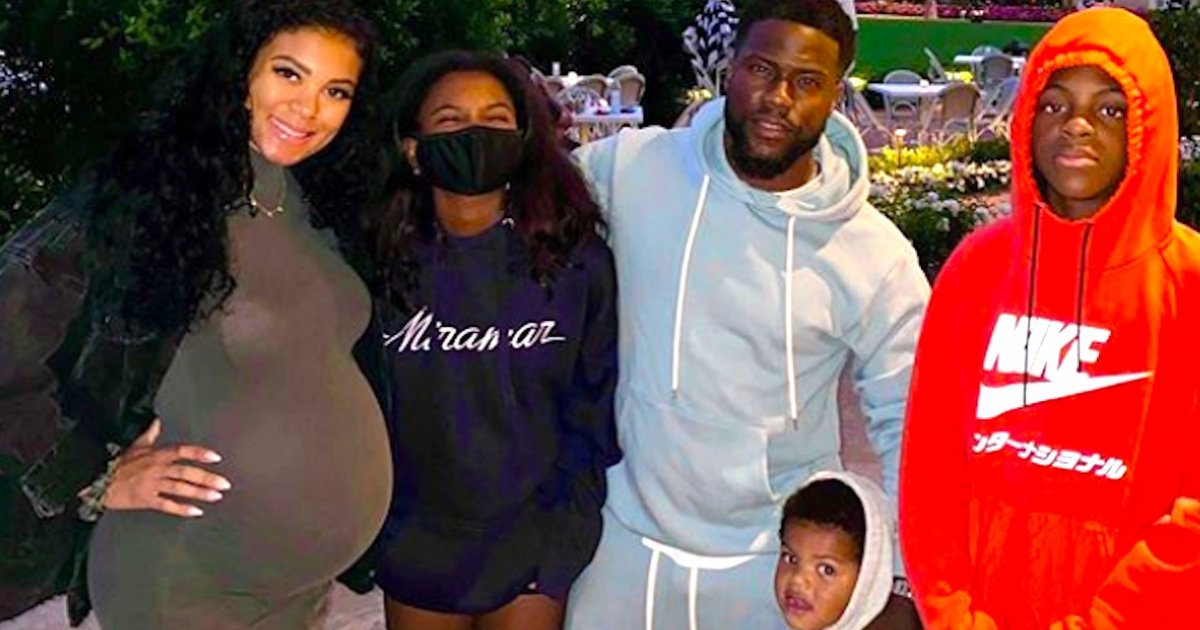Kevin Hart's Growing Family
- Kevin Hart, 41, showcased his beautiful family on Instagram this week.
- The comedian lost his mother to ovarian cancer in 2007.
- Ovarian cancer is treated in several ways; and in 2020, approximately 21,750 women will be diagnosed with ovarian cancer.
https://www.instagram.com/p/CGauBAMl6Ah/
Ovarian Cancer Statistics in the U.S.
Kevin Hart has expressed his love and admiration for his mom, Nancy Hart, who passed from ovarian cancer 13 years ago. This disease occurs when malignant cells form and become cancerous. It was previously believed that ovarian cancer only started in the ovaries, but new evidence suggests that ovarian cancer may start in cells in the fallopian tubes, according to the American Cancer Society (ACS).
The ACS says that in 2020, approximately 21,750 women will be diagnosed with ovarian cancer. It primarily affects older women; nearly half of women diagnosed with ovarian cancer are over the age of 63. This cancer ranks fifth in cancer deaths among women, and the risk of getting it is a 1 in 78 chance.
Related: 5 Possible Symptoms That May Indicate Gynecological Cancer
Ovarian cancer has been called the “cancer that whispers,” due to its hard-to-spot symptoms.
Dr. Beth Karlan Explains How Ovarian Cancer is the “Cancer That Whispers”
Ovarian Cancer Treatment
While we don’t know many details about the late Nancy Hart’s treatment path, we do know some ways this cancer is treated after diagnosis. Dr. Karen Zempolich, a gynecologic oncologist at St. Mark’s Hospital, spoke with SurvivorNet about the ovarian cancer treatment path.
Dr. Zempolich speaks to the importance of open conversations with your treatment provider. “I think the first and foremost way that individualized medicine is relevant in today’s era of medicine is first having a relationship with the provider, that you’re comfortable asking questions: ‘What’s right for me?’ Saying what your main concerns are, how you prioritize different side effect ratios or benefits, expressing your concerns, your wishes, and your values in terms of choosing between things and being able to have that conversation that allows for individual care.”
Additionally, Dr. Zempolich breaks down some available therapies, telling SurvivorNet, “The targeted therapies that are coming out are related to genetic mutations within the tumors. And looking for them in panels of mutations to say, ‘Okay, we have six targeted therapies taking care of action upon several different cell mechanisms.” This is all to say, your treatment path will typically be dependant upon how your cancer develops.
“Right now, over the last several years, we have now understood that after upfront initial treatment, surgery, and typically intravenous chemotherapy, we can give oral therapy by the way of PARP inhibitors that are given as what we would call maintenance,” Dr. Zempolich says.
Custom-Fitting An Ovarian Cancer Treatment Plan to You
Losing a Parent to Cancer
Losing a parent to cancer, as Hart did, can, as you’d expect, be really hardand going through milestones, like having children, can be even harder. When losing a parent to cancer, the grieving process often looks different for different people. Seeking support as you move through your grief and spending time with existing family, like Hart has done can be critical to the emotional healing process.
Other ways to handle the strong emotions of grief may include joining a support group or seeking therapy. Therapy is a helpful tool for many who are working through the grief process.
"Therapy Saved My Life": After Losing A Loved One, Don't Be Afraid To Ask For Help
Learn more about SurvivorNet's rigorous medical review process.


